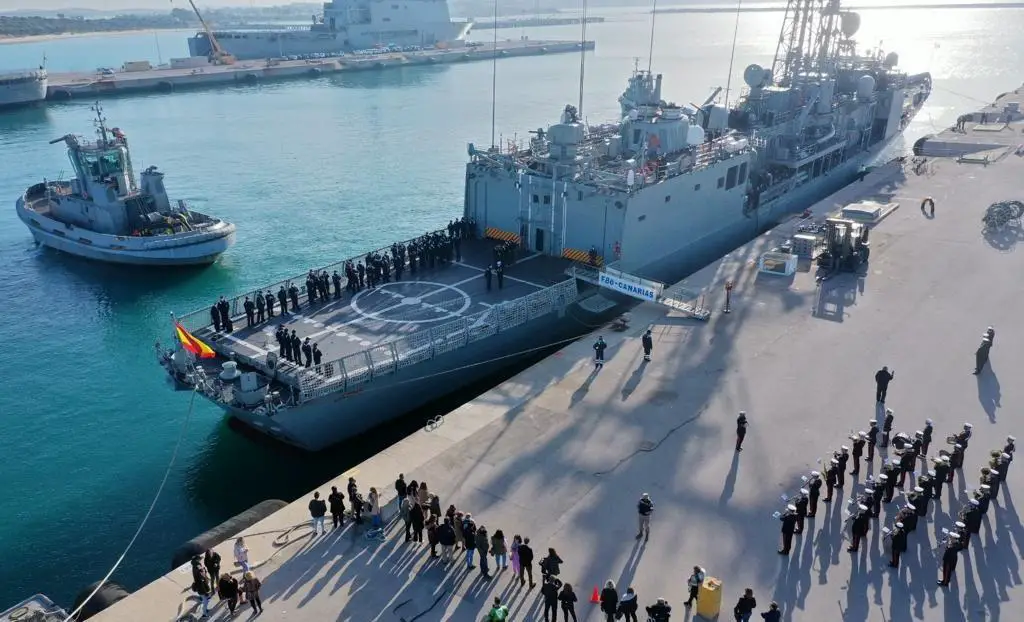On the morning of February 10th the F-80 frigate ‘Canarias’ set sail from the Rota Naval Base to join ‘EUNAVFOR Somalia’ in the framework of Operation ‘Atalanta’, in the Indian Ocean. A farewell ceremony was presided over by the Fleet Commander and attended by relatives of the crew and the Music Band from the ‘Tercio Sur’. Frigate ‘Canarias’ will conduct maritime security tasks during her deployment. The ship will be supported by an Embarked Air Unit (UNAEMB), made up by an ‘Augusta-Bell 212’ helicopter and a ‘Scan Eagle’ unmanned air vehicle. A Marine Corps Security Team has also embarked to carry out security and boarding duties.
Frigate ‘Canarias’ is under command of Cdr. Rafael Samaniego Martín de Francisco and will take over from her sister ship ‘Victoria’. She is expected to remain integrated into EUNAVFOR until next June. The presence of a new Spanish Navy ship in Operation ‘Atalanta’ contributes to maintain Spain’s commitment to the European Union and international security, which begins beyond our borders. In addition, the participation of the Navy in Operation ‘Atalanta’ has counted with the permanent presence of a Spanish warship since 2009, providing security and prestige for Spain and contributing directly to the foreign action of the State.

The mission of frigate ‘Canarias’ includes preventing and deterring piracy, protecting vulnerable shipping, especially World Food Program ships, and cooperating with other international agencies and missions to help Somalia acquire capabilities that promote a secure environment, enabling its social and economic development. During the first weeks of integration into EUNAVFOR, frigate ‘Canarias’ will serve as flagship of the Portuguese admiral, who is currently commanding the force.
Canarias (F86), is the last of the six Spanish-built Santa Maria-class frigates, based on the American Oliver Hazard Perry-class design, of the Spanish Navy. Laid down on 15 April 1992, and launched on 21 June 1993, Canarias was commissioned in service in 1995. The ship features a series of improvements to her previous sisters, with a new Meroka mod 2B CIWS, and upgraded fire control systems with Mk.92 mod6 CORT (Coherent Receiver Transmitter) and SPS-49(v)5 radar instead of previous (v)4. All of these Spanish frigates have the length of the later Oliver Hazard Perry frigates, and have a wider beam than the US Navy design, and therefore able to carry more top weight. Fin stabilizers are fitted.












